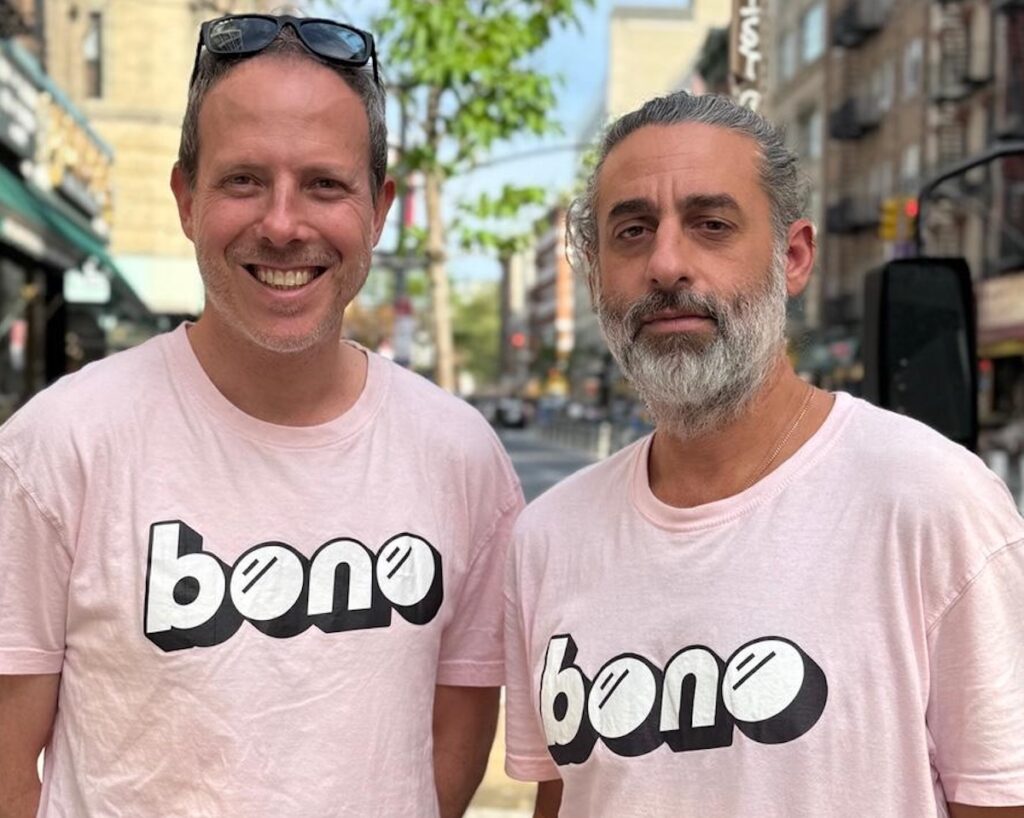Every year, donors contribute billions of dollars to charities, yet the donation process still feels outdated and cumbersome. Founders Dan Eblagon and Ron Levy believe there is an easier way to donate, leading to the creation of Bono, a platform designed to facilitate a more modern and streamlined approach to giving.
The platform (named after the phrase “pro bono,” not the singer of the same name) focuses on connecting users with a selection of vetted charities based on which causes they care about, such as the climate crisis, LGBTQ+ rights, ending animal suffering, and more. Users set a monthly plan, starting at $5 per month, and Bono automatically distributes funds across the chosen charities.
The company announced its official launch on Monday, coinciding with a $1.6 million pre-seed funding round.
This new capital will be used to enhance the user experience, including an AI-powered chatbot that matches donors with suitable charities. This feature is currently in a pilot phase and is expected to launch to the public by September.

The concept for Bono originated from a phone call Eblagon received from a telemarketer soliciting donations for a charity that they claimed he had previously contributed to.
“On the one hand, I felt good that I donated and they remembered my donation, but on the other hand, I didn’t remember this charity or what impact it made,” Eblagon told TechCrunch. “It sent me down the path of wanting to build a modern platform that disrupts the old way of giving. I knew that making phone calls based on old donation records with no details on things like impact or interests wasn’t effective.”
To keep users engaged and informed, Bono provides a weekly impact report, detailing how and where their donations are making a difference. For instance, it shows how many meals or mental health sessions their donations paid for. There’s also a mobile app (available on iOS and Android devices) to see their annual impact.
Techcrunch event
Berkeley, CA
|
June 5
Another way Bono is modernizing the experience is by forming partnerships with content creators to help increase awareness, paying them for their efforts.

Bono has three types of models: flat-fee campaigns, where influencers are paid upfront for promoting; affiliate-style revenue sharing, where creators earn based on performance; and donated commissions, which allow creators to donate their share of the earnings back to the cause promoted.
Some people may view these arrangements as an ethical gray area. However, according to Eblagon, “most creators” prefer the third option, opting to contribute their earnings to the causes they care about.
He said, “It’s not just about promoting another product, it’s about standing for something they believe in, while showing a deeper side of their personality.”
Currently, Bono has more than a dozen creator partnerships.
Bono soft-launched in December to respond to the demand from donors wanting to support victims affected by the Los Angeles wildfires. Since then, Bono has expanded its reach from just 100 charities to all 1.5 million charities in the U.S., with the average donation around $20 per month. Some donors even contribute over $1,000 per month.
All nonprofits featured on Bono are registered in the U.S. and must meet specific standards. The company says it requires a rating above 8.5 on websites like Charity Navigator and GuideStar. A strong social media presence is also important.
The funding round was led by Progression.Fund, with participation from several angel investors who are senior executives at major companies, including Amazon, Google, Microsoft, Intuit, and X/Twitter.


